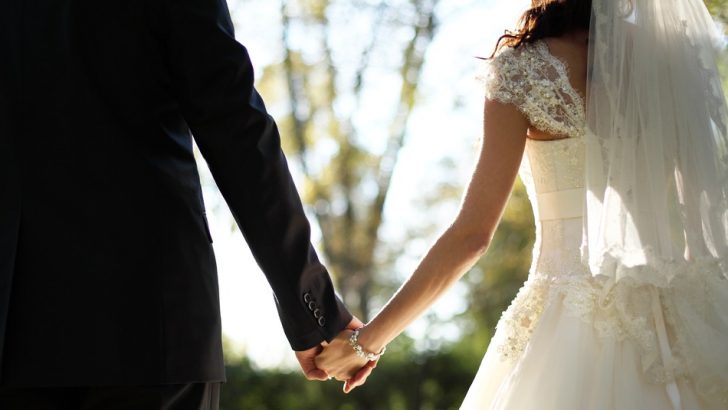Questions of Faith
While 100 years ago it would have been strange and unconventional for a Catholic to marry someone of another religion, today the practice is becoming more and more common. Catholics can certainly celebrate a valid sacramental marriage with a partner of a different Christian denomination, although this practice requires permission from a Church authority, like a bishop. Marriage between a Catholic and a non-baptised person – otherwise known as marriage with disparity of cult – is also valid, if one receives an “express dispensation.”
“This permission or dispensation presupposes that both parties know and do not exclude the essential ends and properties of marriage; and furthermore that the Catholic party confirms the obligations, which have been made known to the non-Catholic party, of preserving his or her own faith and ensuring the baptism and education of the children in the Catholic Church.” (CCC 1635)
It’s clear then that Catholics can partake in a mixed marriage, but should they? In general, these unions are not recommended as they cause tension between the couple, and often confusion among children. Religion entails a particular worldview which includes proscribed behaviours as well as moral and liturgical obligations. If two people fundamentally disagree about purpose and what it means to live an ethical life, then no doubt a vehement disagreement will arise.
Experience
“But the difficulties of mixed marriages must not be underestimated. They arise from the fact that the separation of Christians has not yet been overcome. The spouses risk experiencing the tragedy of Christian disunity even in the heart of their own home.
“Disparity of cult can further aggravate these difficulties. Differences about faith and the very notion of marriage, but also different religious mentalities, can become sources of tension in marriage, especially as regards the education of children. The temptation to religious indifference can then arise. (CCC 1634)
This perspective may seem harsh or judgemental but the same outlook could be applied to one’s political views. If two people fundamentally disagree about topics such as abortion rights, migration, and the role of the state, then finding unity with another will be a burdensome task.
Perfect marriage
This doesn’t mean that a perfect marriage requires couples to agree on every given topic, but there must be enough unity in ideas and practices to make the marriage sustain and grow.
The Church is aware that people marry for all sorts of reasons, such as love, and that for many Catholics, the religion of their potential spouse isn’t a deterrent to do this. In light of this, it’s the Church’s hope that a non-baptised spouse will freely convert during the marriage.
“In marriages with disparity of cult the Catholic spouse has a particular task: ‘For the unbelieving husband is consecrated through his wife, and the unbelieving wife is consecrated through her husband.’ It is a great joy for the Christian spouse and for the Church if this ‘consecration’ should lead to the free conversion of the other spouse to the Christian faith.
“Sincere married love, the humble and patient practice of the family virtues, and perseverance in prayer can prepare the non-believing spouse to accept the grace of conversion.” (CCC 1637)


 Colm Fitzpatrick
Colm Fitzpatrick

